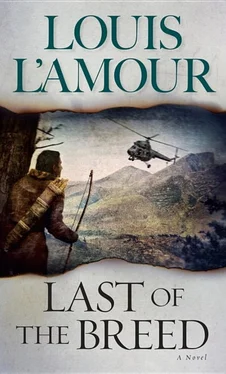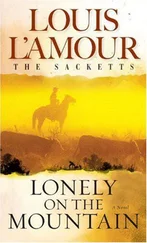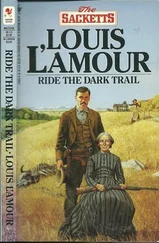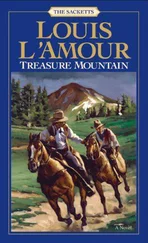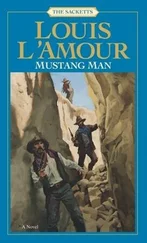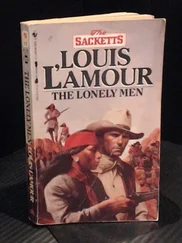Louis L'Amour - Last of the Breed
Здесь есть возможность читать онлайн «Louis L'Amour - Last of the Breed» весь текст электронной книги совершенно бесплатно (целиком полную версию без сокращений). В некоторых случаях можно слушать аудио, скачать через торрент в формате fb2 и присутствует краткое содержание. Город: New York, Год выпуска: 2010, ISBN: 2010, Издательство: Random House Publishing Group, Жанр: Триллер, Историческая проза, Приключения про индейцев, на английском языке. Описание произведения, (предисловие) а так же отзывы посетителей доступны на портале библиотеки ЛибКат.
- Название:Last of the Breed
- Автор:
- Издательство:Random House Publishing Group
- Жанр:
- Год:2010
- Город:New York
- ISBN:978-0-553-89935-1
- Рейтинг книги:3 / 5. Голосов: 1
-
Избранное:Добавить в избранное
- Отзывы:
-
Ваша оценка:
- 60
- 1
- 2
- 3
- 4
- 5
Last of the Breed: краткое содержание, описание и аннотация
Предлагаем к чтению аннотацию, описание, краткое содержание или предисловие (зависит от того, что написал сам автор книги «Last of the Breed»). Если вы не нашли необходимую информацию о книге — напишите в комментариях, мы постараемся отыскать её.
Last of the Breed — читать онлайн бесплатно полную книгу (весь текст) целиком
Ниже представлен текст книги, разбитый по страницам. Система сохранения места последней прочитанной страницы, позволяет с удобством читать онлайн бесплатно книгу «Last of the Breed», без необходимости каждый раз заново искать на чём Вы остановились. Поставьте закладку, и сможете в любой момент перейти на страницу, на которой закончили чтение.
Интервал:
Закладка:
Puzzled, he watched for a few minutes, then returned to his fire and his bed.
It was still dark when he awakened. The first thing he thought of was the truck.
Apparently it had been disabled. Yet that was not necessarily so. Should he go down to it? Almost anything such a truck carried might be useful to him.
Yet he might be seen. He decided not to take the risk and came down off the mountain and started east. The highway, if such it could be called, ran along the river he had crossed a few days ago. That river had taken a bend to the north, and—
He stopped again. Directly before him was a road! A dirt road of simply two parallel tracks, such as many he had seen in his own country. On that road were fresh tire tracks, two sets of them. Puzzled, he turned left, following along. He found the tracks of some small animal crossing the fresh tracks, and there were spots of oil, scarcely stiff from the cold.
The truck he had seen must have turned off the highway and come here. The second set of tire prints showed the truck returning. Wary, but curious, he followed the road but kept back in the trees.
Something dark and shadowy loomed ahead. He drew closer. A building, a tailings pile, and a track that ran out on a dump and ended there.
For a few minutes he watched. The place seemed deserted. An abandoned mine.
Why had the truck turned off the road to come here? It had not been disabled as he had thought, but simply seeking the turnoff in the darkness.
No smoke, nothing. He moved down to the nearest building, where the road ended, and peered inside.
Boxes, crates, and barrels, all neatly stacked!
He had come upon the cache of a black-marketing truck driver. Not many of the boxes and crates were alike. It was possible that the driver, either on his own or with the connivance of some others, had been loading extra boxes from a warehouse, discharging them here to be picked up by others.
Was there somebody around? Someone to guard their stolen property? Or was it sufficiently far into the wilds where none was needed?
He had learned to speak a little Russian, but read it he could not. He doubted if the few words he saw stenciled on the boxes had anything to do with the contents. Another quick look from the window showed him nothing, and with a hammer nearby he opened the nearest box.
Canned goods! He tried a second and a third. Food in most of them, and then several boxes of clothing.
Running to the windows for another quick look, he made up a bundle of both clothing and food and carried it into the forest. What he had hoped to find was a pistol and ammunition, but there was no such luck, and he had already spent enough time. Bundling the boxes back into shape, he renailed them, and wiping out what tracks he had left, he slipped away into the woods.
From first to last, he doubted if he had been in the building more than twenty minutes. As he was leaving he heard the distant sound of a truck.
Catching, up his bundle he scrambled higher on the mountain. Looking back, he could see nothing of the building he had just left or any sign of the road leading to it. A truck was passing on the highway. Taking his pack, he moved back deeper into the forest and away from the highway. At dusk he stopped and building a small fire, ate better than he had for weeks. When he had eaten and his fire was down to glowing coals he looked again at the clothes he had taken. There had been no time to try on what he had found, and he had judged the coat just by laying it open on its box, but it had looked large enough. He had taken the pants that went with it, and now he tried on the coat. It was a passable fit, not good, but better than he expected. The trousers were too large in the waist, but that was no problem. A tight belt would handle that.
He packed the suit in as neat and small a package as possible and put it with the shirt Natalya had made for him. If he needed to go into a city, he was now prepared, but for one thing. He had no shoes or boots. His moccasins would attract the eyes of any who saw him.
He walked on into the forest. From the ridge where he had looked at the passing truck he had seen what appeared to be a large farm in the distance. In Yakutia, he knew, there were many large farms, and although he had passed out of that area he was apparently coming into another such.
Steadily, he worked his way east through dense forest, avoiding roads and signs of cultivation. From time to time he glimpsed people, mostly dressed in furs as he was, from what he could make out at the distance. From now on it would be more and more difficult to hide; nor could he leave traps here. Joe Mack had no desire to accidentally injure some unsuspecting person. Those who were trailing him did so at their own risk, but a trap left for them might be stumbled upon by a trapper, a hunter, or simply some wanderer in the forest.
In a thick forest of larch, he found a corner near a huge fallen tree and bedded down for rest. The hour was early, but he must travel by night. Yet he was not forgetting the tiger track he had seen.
With only his bow and quiver of arrows, he had no desire to encounter a tiger.
He was alone, and he was tired. Not physically tired, but tired of running, tired of hiding. The sky was a pale blue, the spruce a dark fringe, almost black against that sky. He stood, looking about him, wondering if it was here, in this far land, where he was to die.
What was he, anyway? Was he an Indian or a white man? And what difference did it make? His blood was Indian blood, but the world in which he lived was that of all men, having nothing to do with race or color. To exist is to adapt, and if one could not adapt, one died and made room for those who could. It was as simple as that. Beating one’s fists against the walls did no good. It was an exercise in futility.
The terrorist lives for terror, not for the change he tells himself he wants. He masks his desire to kill and destroy behind the curtain of a cause. It is destruction he wants, not creation.
A political revolution always destroys more than it creates. It had taken the Soviet Union thirty years to rebuild what the revolution had destroyed, and the government that had resulted was no different. Only the names had changed, the names of the people as well as the institutions.
He was a Sioux, and for the Sioux as for most Indians war had been a way of life. More than one Indian had said that without war they could not exist. But it had been the same for the Vikings, whose very name stood for raiding and robbery. It had been no different for the Crusaders, who masked their lust for war under the banner of a holy cause.
When the Sioux had first encountered the white man, the white man was despised. He was a trader for fur. If he was any kind of man, why did he not trap his own fur?
His people had no way of gauging the power behind the westward movement or the white man’s drive to own land, to live on the land. Only the first white men to come had been free rovers like the Indian; the rest had been settlers who came and built cabins, who plowed up the grass and planted corn.
Not until too late did the Indian realize what was happening to his country. He and many of the white men, too, bewailed the killing of the vast herds of buffalo, but where millions of buffalo roamed there were now farms that could feed half the world; there were hospitals, universities, and the homes of men.
He was a warrior of the old school. It was the life he had always wanted, the life he knew best, but he could still appreciate the changes that had taken place. Nothing ever remained the same; the one inexorable law was change.
Major Joseph Makatozi, once an athlete and flyer known as Joe Mack, walked down into the forest again, an Indian.
Thinking of what was to be or what should have been did no good now. To exist, to survive, to escape, these must be all his thought, all his wish, his only need.
Читать дальшеИнтервал:
Закладка:
Похожие книги на «Last of the Breed»
Представляем Вашему вниманию похожие книги на «Last of the Breed» списком для выбора. Мы отобрали схожую по названию и смыслу литературу в надежде предоставить читателям больше вариантов отыскать новые, интересные, ещё непрочитанные произведения.
Обсуждение, отзывы о книге «Last of the Breed» и просто собственные мнения читателей. Оставьте ваши комментарии, напишите, что Вы думаете о произведении, его смысле или главных героях. Укажите что конкретно понравилось, а что нет, и почему Вы так считаете.
